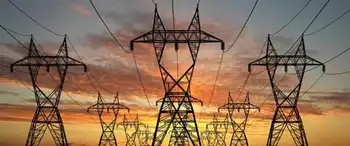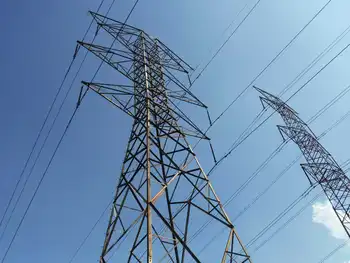Despite Chaos, Deregulation Supported In US
NEW YORK -- - Deregulation of the US electricity market sowed far more pain and chaos than its proponents could possibly have foreseen, but energy experts say the badly tarnished effort still has merits.
"You would be hard pressed to say consumers are better off today after the restructuring of the electric markets. We made a lot of mistakes," said Ken Malloy, chief executive of the Center for the Advancement of Energy Markets, a think-tank that advocates the deregulation of energy markets.
In the 1980s, power-intensive industries like aerospace manufacturers in California threatened to move factories unless state regulators allowed them to sidestep local utilities to tap cheaper energy from neighboring states.
In an effort to preserve jobs and tax revenues, states adopted deregulation on the promise of turning an inefficient, tightly regulated market over to the laws of a free market, in turn bringing down power prices through competition.
"It was intellectually dishonest to assume deregulation would cut power prices, but that's how it was sold to the public. There was no recognition prices would rise when demand for power is higher and fuel costs are up," said Malloy.
Under the old system, states regulated prices based on the average cost of generating electricity 365 days a year.
That resulted in artificially low prices in the summer, when power demand for air conditioning peaks, and artificially high prices the rest of the year, when demand is lower.
"The old system provided no incentives for consumers to conserve energy because they paid the same price at all times of the year. But by charging real prices, people would reduce their usage as prices rise," said Tim Brennan, professor of policy sciences and economics at the University of Maryland, Baltimore County, who specializes in electric restructuring.
WHAT HAPPENED
For customers in the western United States, deregulation had devastating effects during the winter of 2000-2001. It triggered a tenfold jump in prices, sent California's biggest utility into bankruptcy and left residents without electricity during rolling blackouts.
After a couple of months, as businesses began to lay off workers and close their doors because of sky-high electric bills, federal regulators put an end to the region's energy crisis by capping wholesale prices and forcing reluctant generators to sell power to the state.
"California lost billions of dollars and consumers there have been harmed by the reforms that were put in place. We do not believe, however, that those reforms were deregulation -- there was no competition," said CAEM's Malloy.
In the East, there was a more orderly transition to a deregulated wholesale market.
Industrial and large commercial businesses, like auto manufacturers and department stores, have benefited the most as energy marketers have competed to offer cheaper electricity and services to these large customers.
Very few energy services companies, however, are competing to offer electricity to homeowners because they cannot compete with the still-regulated, low rates offered by the utilities.
"It remains to be seen whether (deregulation) will ever be worth a dime for homeowners. We're still years away from having energy services companies that provide the total energy needs for the home -- light, heat and air conditioning -- at a set price, like some ESCOs are now providing to their corporate clients," Brennan said.
BENEFITS OF DEREGULATION
Even though deregulation is a dirty word throughout much of the country, economists and academics claim the idea is not yet ready for the scrap heap.
"The world of energy competition did not start with California's failures," said CAEM's Malloy. "There have been many benefits from deregulation, it just takes time to see those benefits."
The deregulation of the natural gas market in the 1980s, for example, has so far generated some $600 billion in cost savings, or about $6,000 per US household, according to a study by CAEM.
The benefits of electric deregulation include real pricing, which is seen as rewarding consumers for conserving energy during peak demand hours, and the development of services and technology to promote energy efficiency.
Related News

Uzbekistan Looks To Export Electricity To Afghanistan
LONDON - Senior officials with Uzbekistan’s state-run power company have said work has begun on building power cables to Afghanistan that will enable them to increase exports by 70 per cent.
Uzbekenergo chief executive Ulugbek Mustafayev said in a press conference on March 24 that construction of the Afghan section of the 260-kilometer Surkhan-Pul-e-Khumri line will start in June.
The Asian Development Bank has pledged $70 million toward the final expected $150 million bill of the project. Another $32 million will come from Uzbekistan.
Mustafayev said the transmission line would give Uzbekistan the option of exporting up to 24 million kilowatt hours to…




